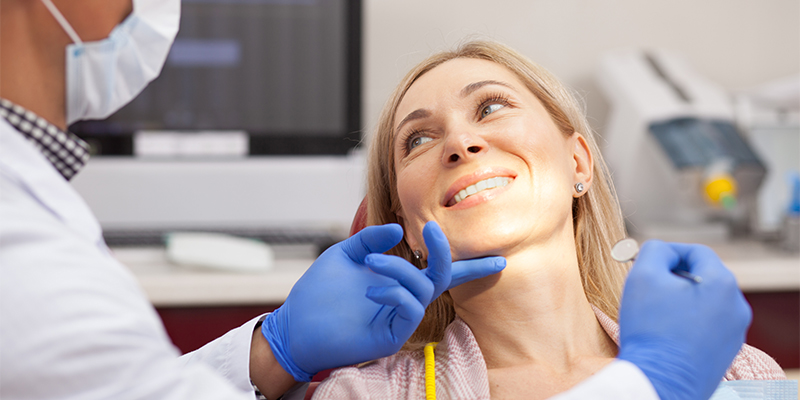
Preventive Care
Preventive dental care is a proactive and essential approach to maintaining optimal oral health and avoiding costly, invasive treatments in the future. It focuses on identifying and addressing potential issues before they develop into serious problems, ensuring your teeth and gums remain healthy. By combining routine dental visits with effective at-home care, preventive dentistry supports your overall health and well-being. Regular check-ups, cleanings, and screenings play a vital role in preserving natural teeth and preventing complications. With preventive care, you invest in a lifetime of confident, healthy smiles.
Why Preventive Dental Care Matters
Preventive dental care is the first line of defense against common oral health issues like cavities and gum disease. By removing harmful plaque and tartar buildup, it minimizes the risk of tooth decay and periodontal problems. Early detection of conditions such as oral cancer or infections ensures timely treatment, potentially saving teeth and even lives. Preventive measures are cost-effective, reducing the need for expensive restorative procedures down the line. Embracing preventive care improves not only dental health but also your overall quality of life.Professional Dental Cleanings
Professional cleanings remove plaque and tartar that daily brushing cannot eliminate. This service reduces the risk of cavities and gum disease, keeping your teeth and gums healthy. Cleanings also help eliminate surface stains, leaving your teeth looking brighter and cleaner. Most dentists recommend scheduling cleanings every six months, although some patients may require more frequent visits. This vital preventive measure ensures your oral hygiene stays on track, supporting long-term health.
Comprehensive Dental Exams
Dental exams provide a thorough assessment of your oral health, identifying potential issues like cavities or gum disease early. Dentists also evaluate your bite, jaw alignment, and any signs of wear on your teeth. These check-ups allow for proactive care, addressing minor problems before they escalate into major concerns. During exams, dentists may also discuss your oral hygiene habits and recommend personalized improvements. Routine exams form the backbone of preventive care, ensuring your dental health remains optimal.
Fluoride Treatments
Fluoride treatments are a simple yet powerful way to protect your teeth from decay by strengthening the enamel. The dentist applies a concentrated fluoride gel or varnish to the surface of your teeth, creating a protective barrier. These treatments are particularly beneficial for children and adults prone to cavities or with weakened enamel. Fluoride enhances resistance to acid attacks from plaque and sugars, reducing the likelihood of tooth decay. Regular treatments as part of your preventive care routine help maintain strong, healthy teeth.
Dental X-Rays
Dental X-rays allow for a deeper look into your oral health, uncovering issues not visible during a standard examination. These images detect hidden cavities, bone loss, impacted teeth, and other abnormalities early on. X-rays are especially important for monitoring children’s tooth development and identifying orthodontic needs. Modern X-ray technology ensures safety with minimal radiation exposure while providing detailed diagnostic information. By catching problems early, X-rays help you avoid more complex treatments in the future.
Oral Cancer Screenings
Oral cancer screenings are life-saving exams that detect early signs of cancer in the mouth, neck, or throat. Dentists visually inspect for abnormal tissues, lesions, or discoloration and may physically check for lumps or irregularities. Early detection is crucial for successful treatment and recovery, making these screenings an integral part of preventive care. They are quick, painless, and conducted during regular dental check-ups. Including oral cancer screenings in your routine ensures peace of mind and better overall health.
Sealants
Sealants are protective coatings applied to the grooves and chewing surfaces of molars and premolars. They create a barrier against food particles and bacteria, significantly reducing the risk of cavities in hard-to-reach areas. This treatment is especially beneficial for children and teens who may struggle with thorough brushing. Sealants are quick, painless, and can last for years with proper care, providing an extra layer of defense. Adults with deep grooves or high cavity risk can also benefit from sealants as part of their preventive care.
Nutritional Counseling
Nutritional counseling educates patients about the impact of diet on oral health and helps prevent decay and gum disease. Dentists provide tailored advice on limiting sugary and acidic foods that can harm enamel. Emphasizing the inclusion of calcium-rich foods and hydrating beverages supports strong teeth and healthy gums. Proper nutrition plays a significant role in overall dental health, complementing good oral hygiene practices. By making informed dietary choices, you can protect your smile and enhance your overall well-being.
The Role of At-Home Care
Preventive dentistry extends beyond dental visits, with daily at-home care being equally important for maintaining oral health. Brushing twice a day with fluoride toothpaste helps remove plaque and prevents decay and gum disease. Flossing daily cleans areas between teeth that toothbrushes cannot reach, reducing the risk of cavities and gum infections. A balanced diet and adequate water intake promote healthy saliva production, aiding in the natural cleaning of teeth. Regular at-home care enhances the effectiveness of professional preventive treatments. By combining both efforts, you ensure a comprehensive approach to oral health.
The Long-Term Benefits of Preventive Care
Preventive care offers lasting advantages, from preserving natural teeth to improving overall health. It reduces the risk of dental emergencies, saving you from pain and costly treatments. A healthy smile boosts confidence and supports better social and professional interactions. Oral health is closely linked to systemic health, with preventive care helping reduce risks for conditions like heart disease and diabetes. By prioritizing prevention, you invest in a lifetime of optimal dental function, aesthetics, and well-being.
